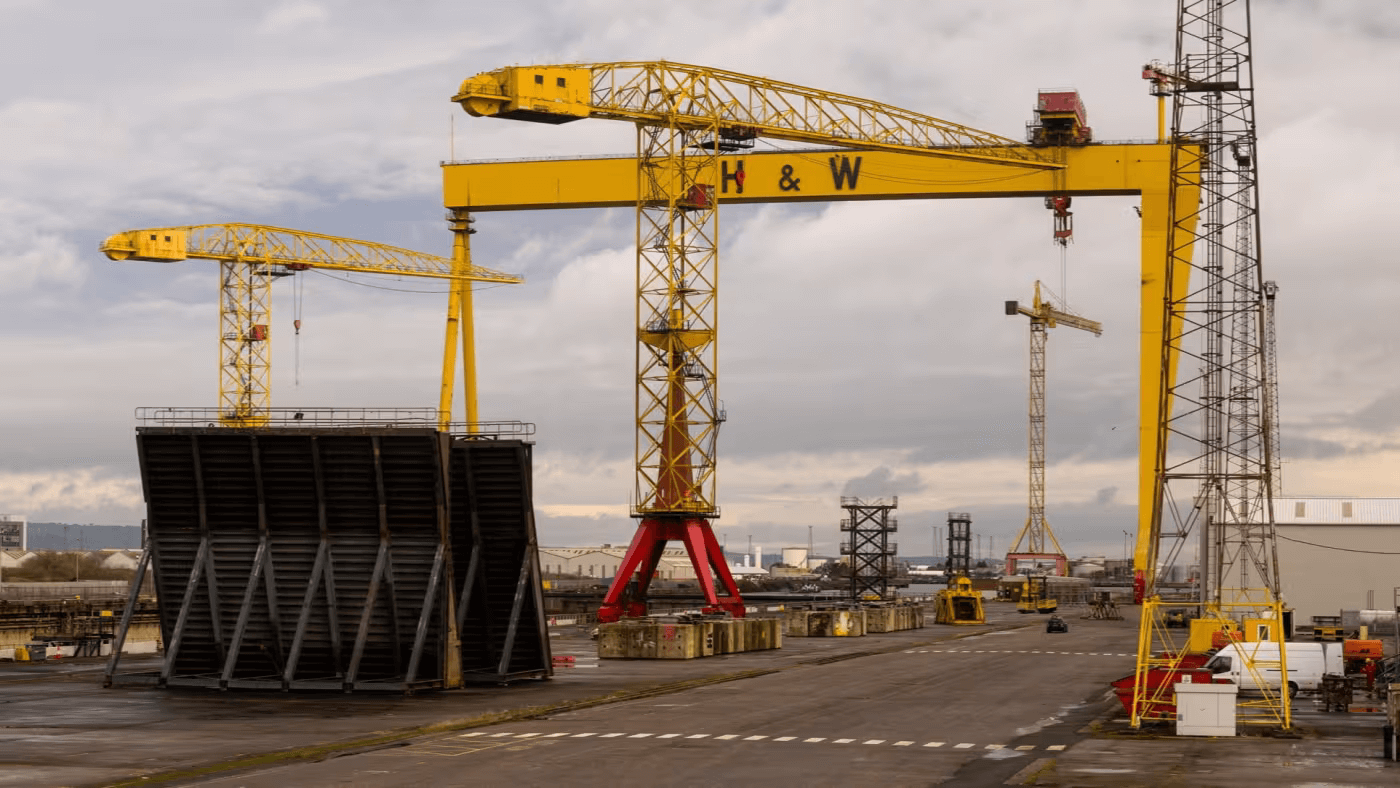
Harland and Wolff Enters Administration
Harland and Wolff, the legendary shipbuilding company best known for constructing the Titanic, is facing stormy seas once again. The company has announced its entry into administration for the second time in five years, leaving the future of this historic shipyard hanging in the balance.
Harland and Wolff’s Administration
Administration Process and Its Scope
- The holding company, Harland & Wolff Group Holdings plc, will enter administration.
- Insolvency practitioners Teneo are set to manage the process.
- Operational companies running the shipyards are expected to continue trading.
Impact on Shareholders and Employees
- Shareholders will see their investments completely wiped out.
- Some “non-core” staff are facing immediate redundancy.
- Further job losses in core activities may occur depending on the sales process.
The Shipyards at Stake
- Belfast, Northern Ireland (Main yard and Titanic’s birthplace)
- Appledore, England
- Methil, Scotland
- Arnish, Scotland
Potential Buyers and Future Prospects
Interested Parties and Sales Process
- Rothschild bank is overseeing the sales process.
- Multiple parties have expressed interest in acquiring some or all yards.
- Spain’s state-owned shipbuilder Navantia shows interest in the Belfast operation.
- Babcock International, a UK defence contractor, is a potential bidder for the Belfast business.
Timeline and Expectations
- First-round bid deadline approaching soon.
- Company hopes to conclude deals by the end of October.
- Executive chairman Russell Downs believes the yards have “a credible future” together or separately.
Challenges and Controversies
Financial Irregularities Under Investigation
- Alleged misapplication of funds exceeding £25 million under previous management.
- PwC and Simmons and Simmons appointed to investigate.s
- Former CEO John Woods denies allegations, calling them “ridiculous”.
Union Response and Government Role
- GMB Union calls for government action to preserve jobs and capabilities.
- Concerns raised about potential “cherry-picking” of yards by private companies.
- Calls for a comprehensive industrial strategy to support the sector.
The Bigger Picture: Implications for UK Shipbuilding
Strategic Importance of Harland and Wolff
- Role in sovereign capabilities for renewables and shipbuilding.
- Involvement in the Fleet Solid Support (FSS) programme for Royal Navy logistics vessels.
Economic Impact on Local Communities
- Potential job losses affecting workers, families, and entire communities.
- Broader implications for the UK’s industrial base and maritime sector.
Looking Ahead: What’s Next for Harland and Wolff?
As Harland and Wolff navigates these turbulent waters, the coming weeks will be crucial in determining the fate of this historic shipbuilder. With potential buyers circling and the government under pressure to intervene, the future of UK shipbuilding hangs in the balance. Will this titan of maritime history sink or sail on to calmer seas?
Stay tuned for updates on this developing story that intertwines industrial heritage, economic challenges, and the future of British manufacturing.
